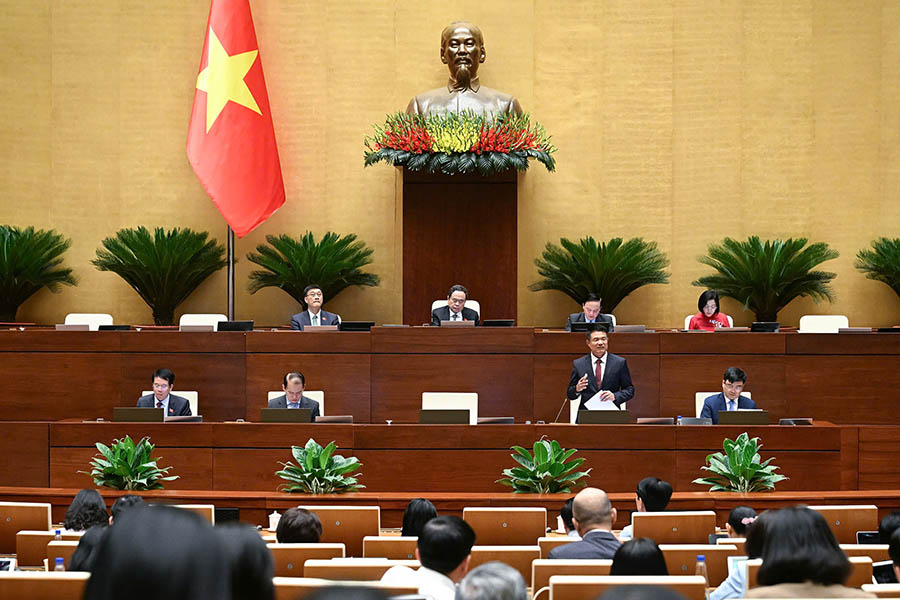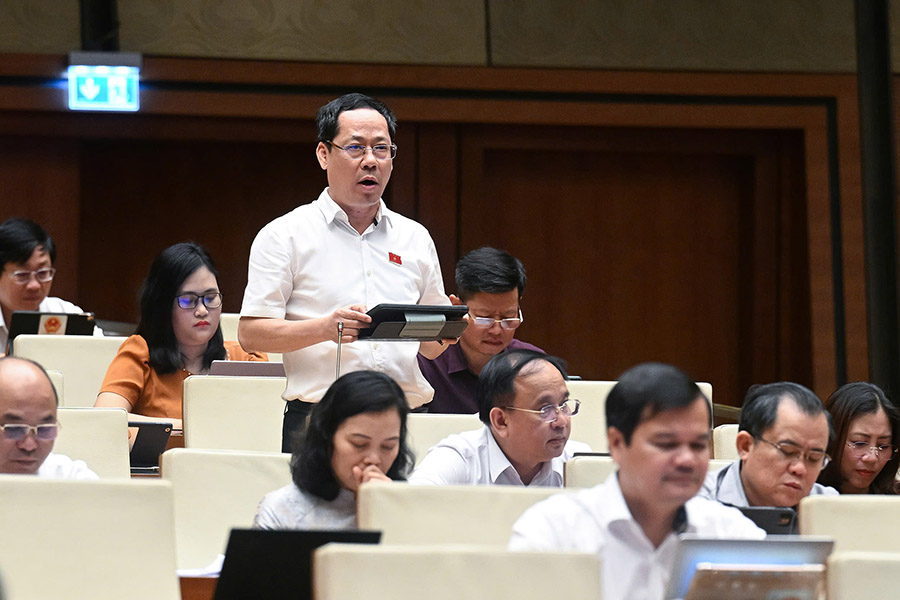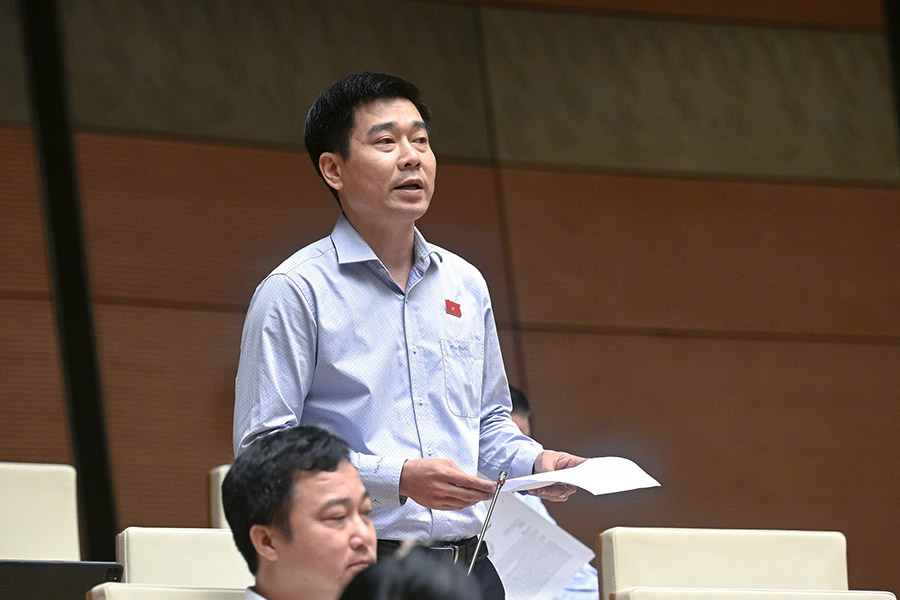Continuing the 9th Session, on the morning of May 29, the National Assembly discussed in the hall a resolution on piloting the People's Procuracy (VKSND) to file a civil lawsuit to protect the civil rights of vulnerable groups or protect public interests.
The majority of National Assembly deputies participating in the speech expressed their agreement with the necessity of issuing this resolution.
According to the delegates, giving the People's Procuracy the right to proactively file lawsuits in specific cases is a breakthrough of the institution to meet practical requirements, contributing to improving the effectiveness of law protection, protecting human rights, civil rights and public interests.
However, there are still some points in the draft Resolution that need to be reviewed, studied and adjusted.

Regarding the regulation of vulnerable groups, according to delegate Tran Nhat Minh - National Assembly Delegate of Nghe An province, the draft Resolution has more detailed regulations than the Civil Procedure Code. However, the draft Resolution stipulates a shortage of people with limited civil act capacity.
In addition, delegates said that, in Clause 2, Article 187 of the Civil Procedure Code, on the right to sue the civil case to protect the legitimate rights and interests of others, the public interests and the interests of the State, the labor collective representative organization has the right to sue the labor case in case it is necessary to protect the legitimate rights and interests of the labor collective or when the employee authorizes the law.
According to the delegate, this is also a group of subjects that need to be protected but has not been included in the adjustment of the Draft Resolution.
"I suggest that the drafting agency study and review regulations on vulnerable groups to ensure consistency, not missing subjects, and continue to review to supplement other necessary cases," delegate Tran Nhat Minh suggested.

Delegate Le Thanh Hoan - National Assembly Delegation of Thanh Hoa province proposed to clearly define the subjects that can be sued.
The delegate said that Article 187 of the 2015 Civil Procedure Code only assigns the authority to file civil lawsuits to protect the legitimate rights and interests of others, public interests and interests of the State for a number of entities that are agencies and organizations in the fields of marriage and family, consumer protection rights, and are under the management of agencies and organizations.
For individuals, they only have the right to file a lawsuit against marriage and family lawsuits to protect the legitimate rights and interests of others.
In the report to the National Assembly, the Supreme People's Procuracy also clearly stated the inadequacies, because the current law has not stipulated the mechanism of the People's Committee of the People's Committee to sue the civil case to protect the civil rights of the subjects that are vulnerable or protect the public interests when agencies, organizations and individuals prescribed in Article 187 of the Civil Procedure Code do not sue.
"The most important thing is not yet clearly defined, which is who the subjects can be prosecuted by the VKS. Can elected bodies, administrative agencies, armed forces units, and even the Court be prosecuted by the VKS? This is a question that needs to be clearly reported by the drafting agency to the National Assembly," said delegate Le Thanh Hoan.

Based on foreign experience as well as political and legal factors and in line with Vietnam's reality, the delegate suggested clearly defining the subjects that can be sued, but not including state agencies and armed forces units.
The VKS should only be allowed to file a lawsuit in cases where the subjects specified in Article 187 of the Civil Procedure Code do not exercise the right to file a lawsuit and do not expand the right to file a lawsuit in cases where the law does not stipulate which agency, organization or individual has the right to file a lawsuit.
According to the delegate, the above regulation is to avoid overlapping tasks with investigation, inspection, and examination agencies, as well as administrative agencies at all levels.











